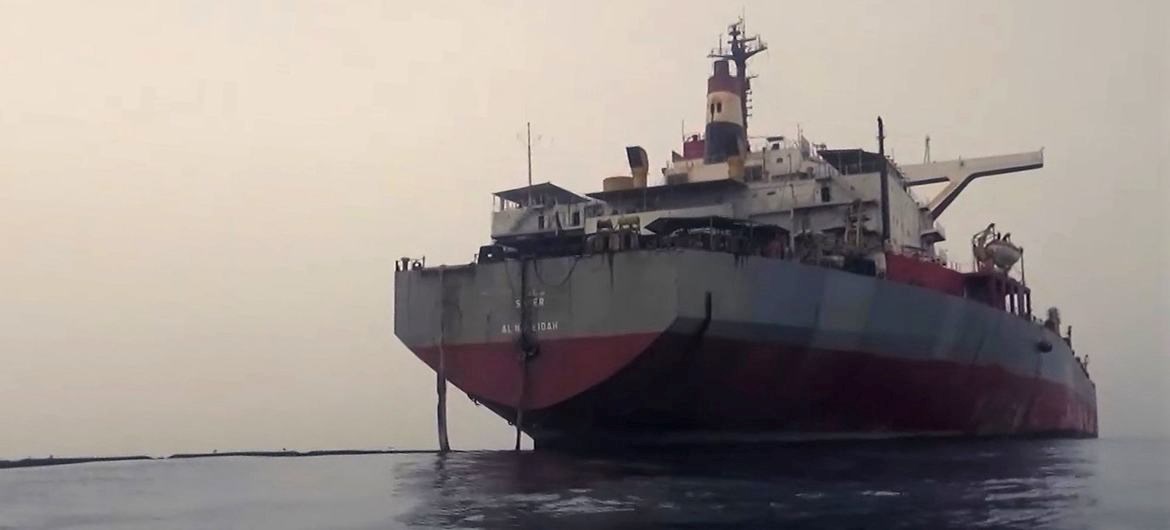Operation to empty decaying oil tanker set to begin in Yemen: UN
The UN says it was ready to begin work on an oil ship that had been abandoned off Yemen's coast in the port of Al-Hudaydah, carrying 1.1 million barrels of petroleum.
-

The FSO Safer moored off Yemen's west coast. (UNRCO Yemen)
The United Nations will begin the ''preparatory phase'' this week to discharge 1.1 million barrels of oil from a decaying ship off the coast of war-torn Yemen to avoid a catastrophic disaster.
UN coordinator for Yemen, David Gressly, told journalists in New York via videoconference that a UN vessel, Ndeavor, docked at the port of Al-Hudaydah on Yemen’s west coast.
Gressly stated on Wednesday that a UN team would inspect the entire vessel and initiate safety steps. ''If all goes according to plan, somewhere late June, early July, we might be able to say that that critical phase of the ship-to-ship transfer could be completed,'' stated Achim Steiner, administrator of the UN Development Programme (UNDP).
The United Nations had launched a fund-raising campaign to finance this operation, anticipating a total cost of $144 million, which in the second phase includes replacing Safer with a safer and more sustainable solution.
The FSO Safer tanker carries four times the amount of oil that spilled from the Exxon Valdez tanker in 1989, according to the United Nations, which led to one of the largest environmental disasters in US history.
Last year, the non-governmental environmental organization Greenpeace called on Arab countries to act “before it is too late” because “the risks posed by Safer are not limited to the people of Yemen and neighboring countries.
The Sanaa government has repeatedly warned of the catastrophic repercussions in the event of the "Safer" oil tank explosion, which "may extend to the Suez Canal."
The Yemeni Armed Forces signed a memorandum of understanding on March 5 that authorizes the UN to transfer around 1.1 million barrels of oil from the ship.
The oil would be moved to a safe vessel that would remain in place. Within 18 months, a new ship would be bought for the Yemeni Armed Forces to replace Safer, ensuring they could operate a thriving oil export enterprise once the war is over. The Safer vessel would then be towed and sold for scrap.
It is worth mentioning that Yemen has become the site of grievous civilian suffering amid intractable Saudi aggression. More than one million people have been displaced, as a result of the war on Yemen, which has resulted in cholera epidemics, medical shortages, and hunger concerns.
Yemen's humanitarian catastrophe has been dubbed "the worst in the world" by the United Nations.
Read next: Report: How the UN and Saudi Arabia are complicit in the FSO Safer crisis

 3 Min Read
3 Min Read










